Writing
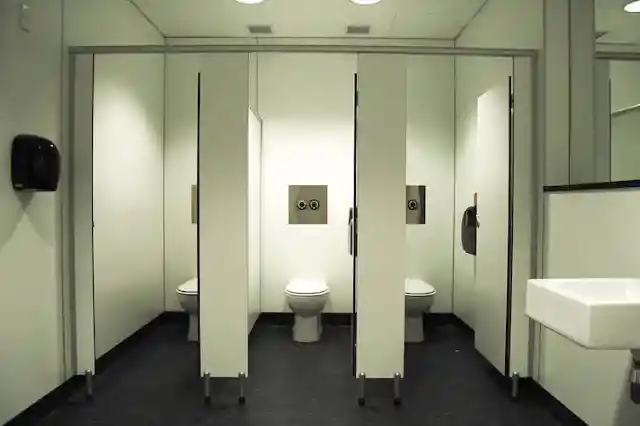

Today, we take many things for granted. From our cars to our grocery stores, to running water in our homes, we really do have everything we need and plenty more. But these amenities haven’t always been available to us. In the spirit of Newton’s quote about the world being on the shoulders of giants, modern society is built on the shoulders of innovative giants, some of whom you’ve probably heard of.
Names like Galileo Galilei and Thomas Edison are two that you may have heard of, while others you’ve probably never heard of before, like Willis Carrier and John Wesley Hyatt, often fail to receive the recognition that they deserve. Some of the most important inventions that have changed human history can be credited to people whose names you might just be discovering for the first time…
The Wheel


You may wonder about this one because, wait, haven’t most languages always had writing systems? While writing is a fundamental presupposition that humans have as language-oriented creatures, it too had to be invented. Over the course of history, languages like English had to be formalized, and developing a way to record speech was a long and arduous process.
English, as people know it today has not always been the same throughout history. Back in the olden days—like, really old—information was saved by word of mouth. But not everyone has a perfect memory, so people needed a way to save information in a way that didn’t rely on faulty human memory. At first, people just recorded basic things like quantities for sales and debts, but then they began to use records for all kinds of other things, and full-fledged writing systems were born. Reddit user: Gaaten
The Plough
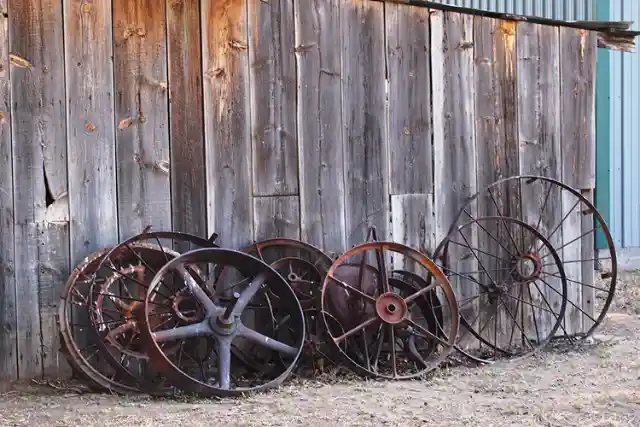
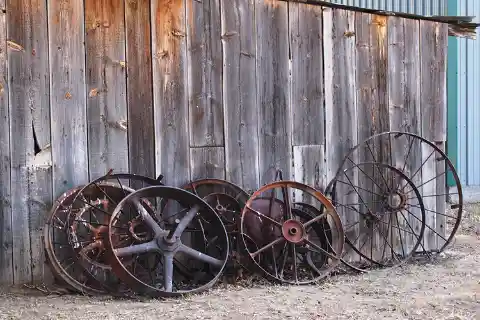
Without wheels, we obviously wouldn’t have cars and scooters and grocery trolleys. But maybe less obviously, human civilizations wouldn’t have developed to the extent that they did, and we might still be riding horses every day to find food. This is because the wheel has been essential throughout history to the development of human civilizations, and for one huge reason….
Transportation. Before the wheel, people had to walk, ride animals, or take a boat. This didn’t only limit how much an individual could travel, but it also severely limited things like trade and commerce; many ancient civilizations were built around rivers because rivers were the easiest way to move large quantities of things like food and supplies. But once the wheel was invented, everything changed, and people could travel further while also taking more with them. Reddit user: richard-coeurdelion
The Screw
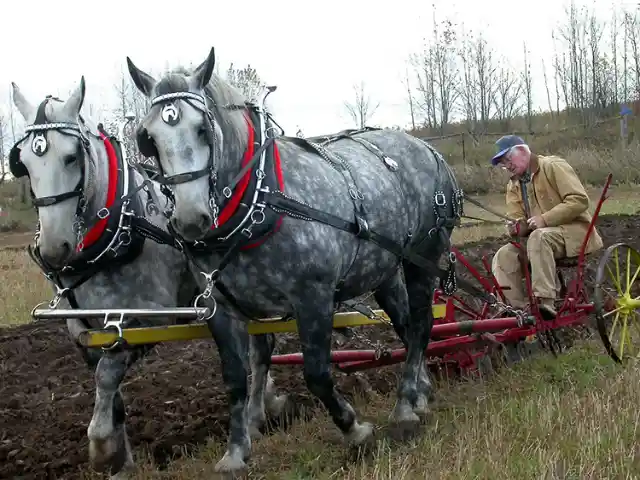
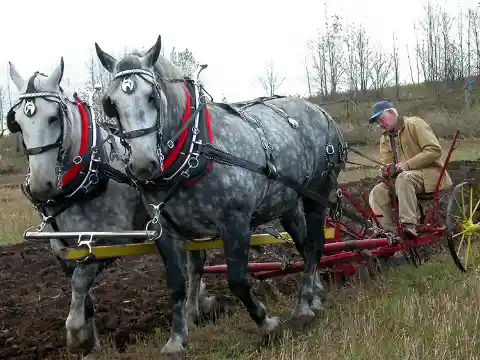
One of the biggest shifts in human history was when humans stopped being hunter gatherers and began to settle down and establish agriculture. While many things contributed to this agrarian lifestyle, few had as much impact and immediate efficacy as the plough. Combined with domesticated animals like cows and horses, the plough became the single most important tool for growing crops.
The ability to grow crops and harvest large quantities of food is what ultimately led to the development of human civilization as we know it. Thanks to the plough, more food was available for less work, meaning that people had time to do other things, like developing art and music, because they didn’t have to constantly worry about where their next meal would come from. Reddit user: escherlogic
The Compass


Considered the last simple machine, screws do one basic thing: they convert a force that goes around something into a force that goes up and down. While screws may seem inconsequential to us today, they were incredibly important in the developing world especially in the Mediterranean—and remain one of the most common devices in modern machinery and engineering.
Historians don’t know who invented the screw, but the first known use of a screw was as part of the screw pump used for the water systems at the Hanging Gardens of Babylon in the 7th century BC. Later, the famous Greek inventor Archimedes also made a machine, today known as Archimedes’ screw. While wooden screws were used, they were difficult to make and less commonly used than nails. It wasn’t until the 19 th century that metal screws became much more popular. Reddit user: scarpa43
Maps


There’s a reason why people say to always have a compass on hand for if you get lost. Originally created by the Chinese in the 1 st century AD, the compass didn’t become a popular means of navigation until the Middle Ages, when more and more exploration began taking place, both on land and on sea, and people needed a reliable way to get their bearings.
Compasses originally consisted of a magnetized needle in water, but a dry compass was quickly developed and became widely used: the forerunner of typical modern compasses today. Today, people may not carry compasses around with them everywhere (well, actually, they do if they have a smartphone), but compasses remain at the foundation of navigation and map-making. (Google Maps still includes a compass on the home screen and lets you orient yourself either by your position or by the north pole.) Reddit user: woodsbre
The Stirrup
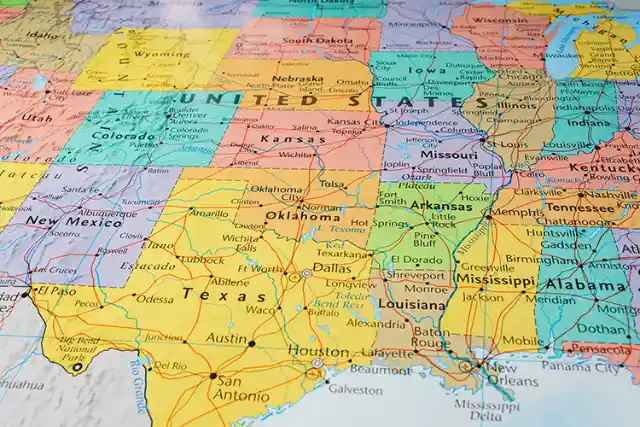
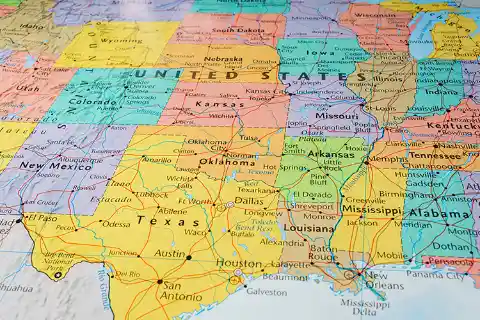
Maps were hugely important for the expansion of human civilizations during the Middle Ages. Before maps, people could only talk about the same places in terms of landmarks and geologic features. But maps meant that people could talk about the same places and give directions without having to rely on faulty human interpretation and miscommunication. And the more maps people drew, the more people who came after them could make sense of the area.
We use maps today in the same way that people did hundreds of years ago, depending on them to get us places. Modern technology has also taken it a step further, now including how long it takes us to get places. In a busy world full of travelling and meetings and appointments, maps have become an invaluable tool for society. Reddit user: tommygunz007
The Needle
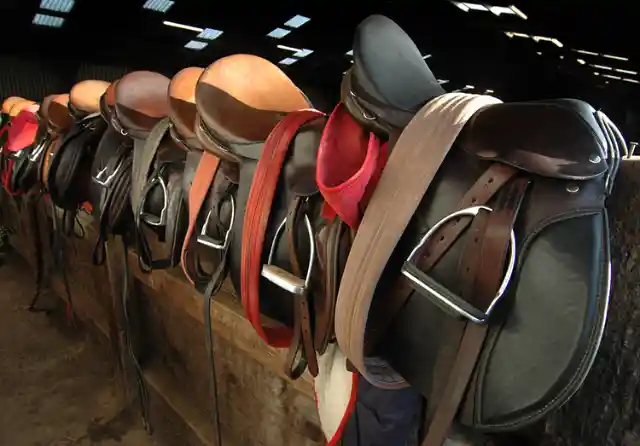
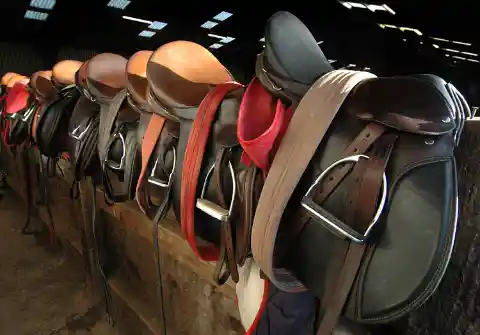
This may come as a surprise to you, but the stirrup is the ancient forerunner to the modern idea of an arms race. In ancient times, armies often used cavalry as their ace in the hole to assert military dominance. However, before stirrups, it was difficult to fight on horseback except with hand-to-hand weapons (like swords). But fighting on horseback completely changed once the stirrup was invented in Asia.
Stirrups helped stabilize riders on horseback, giving them more freedom of movement with their bodies to fight. In the case of Genghis Khan, the Mongolians created metal stirrups that became their military secret; archers could stand in their stirrups and shoot with deadly accuracy while riding at full speed. This ultimately led to the widespread Mongol conquests and the way that warfare was shaped. Reddit user: crankyanddifficult
Antiseptics
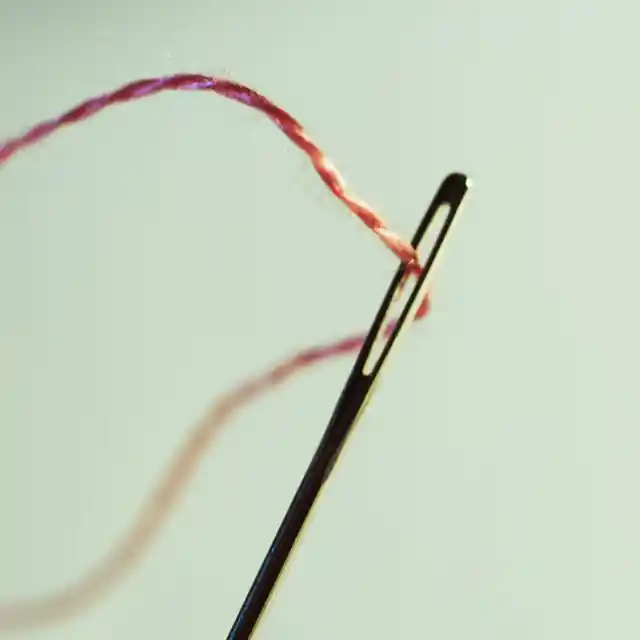
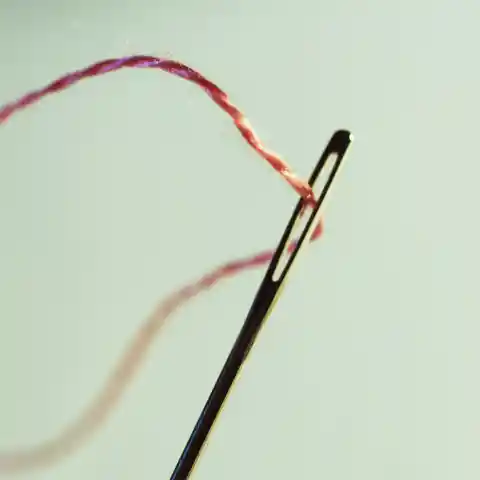
Without the needle, the first humans wouldn’t have had clothes. Without the needle, we wouldn’t have clothes and fashion as we know it today. But the needle is more than just about fashion; it’s about how human civilization spread. From the crude bone needle to the modern metal needle, needles have been helping equip humans for thousands of years now.
Without clothing, humans would be greatly limited as to where they could live; we’d have to live in moderate climates that were never too cold or too hot at any given time. But with clothing, humans can more or less live wherever they want. Of course, humans have come a long ways from sewing animal skins together, but it’s hard to imagine modern living without pants, boots, jackets, and shorts. Reddit user: Atheist_Simon_Haddad
Cement
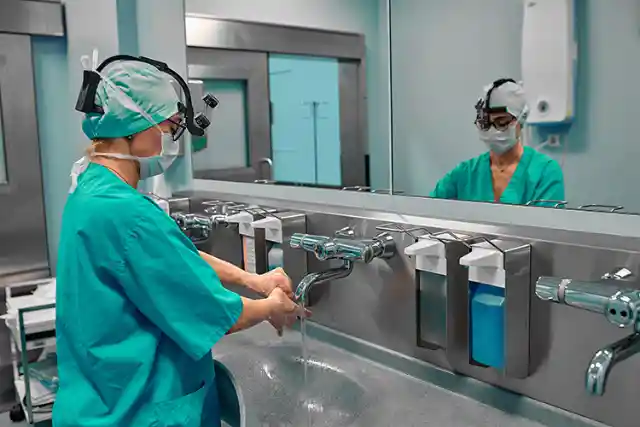
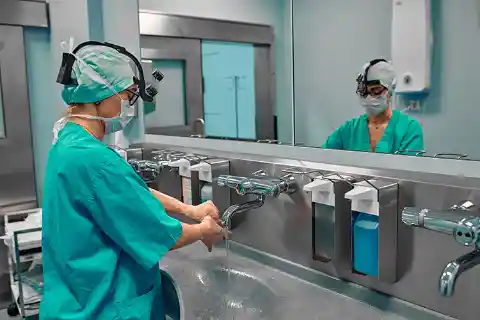
While it seems obvious today that people should wash their hands when bacteria and the human body are involved, back then it was something that most people didn’t consider. Needless to say, doctors who went from performing autopsies to delivering babies saw a great improvement in the health and survival rate of their patients when they began to wash their hands in between.
In the 19th century, a doctor named Semmelweis realized that washing his hands was a good idea. Soon after, the ideas of antiseptics and cleanliness in medicine became popularized by Joseph Lister. And, as the name might suggest, the popular mouthwash Listerine is named after the same Joseph Lister as an homage to his advocacy for antiseptics and the tremendous impact on medical practices and public health that they had. Reddit user: KosstAmojan
The Clock

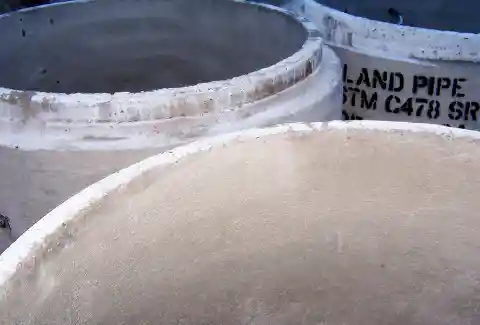
Today, people marvel at how ancient civilizations could have built giant structures like the Great Pyramid and the Great Wall of China without modern technology. Such structures were built without binders or with rudimentary binders—e.g., the Pyramids mostly relied on gravity to hold the blocks together, and the Great Wall used a kind of sticky rice glue. It wasn’t until the Roman empire when synthetic materials like cement were invented and allowed for all kinds of bigger and better buildings.
Unfortunately for Europe, once the Roman empire fell, the concept of cement was lost and didn’t resurface again until the 18th century, when people rediscovered how effective it was to mix lime and clay together to hold structures together. Today, the majority of modern infrastructure relies on synthetic building materials like cement and concrete which, in turn, are what enable us to build such impressive buildings. Reddit user: bloodydog
Laws


The clock is, without a doubt, one of the most important devices that we still heavily rely upon. Clocks perform a relatively simple task—telling us the time of day—but, historically, they’ve been crucial to the development and connection of various civilizations. Without clocks, we would have no sense of time, and without time, many aspects of our lives would be chaotic and unordered.
Besides the general capability of ordering time in daily life, it’s worth noting that clocks—specifically the wristwatch—had a particularly important impact on both transportation and modern warfare. Once time zones became regulated, people could accurately predict when they would arrive at a specific place, whether as passengers on a train or boat or members of the armed forces in cars and airplanes. Reddit user: SamhaneTheMasher
Beer
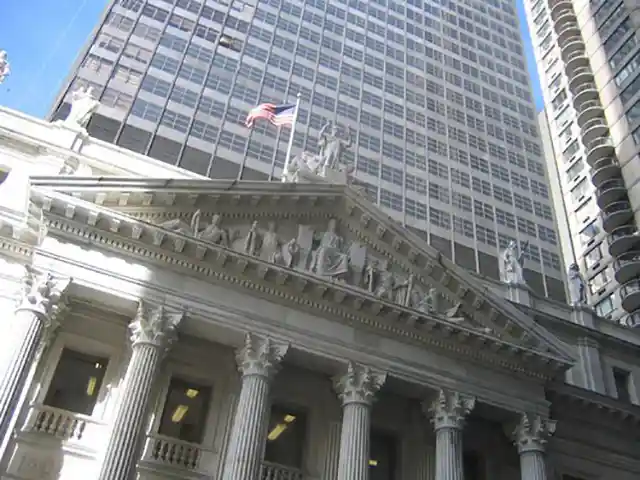
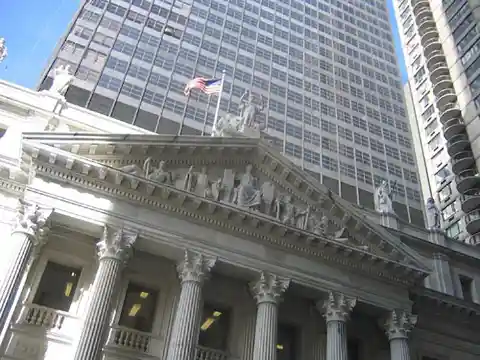
Another fairly fundamental but nevertheless human-created aspect of society is the existence of a code of laws, both social and legal. While laws certainly vary from place to place, they create an orderly society and define what’s considered “right” and “wrong.” Some notable early examples of laws are the Code of Hammurabi and the laws of the Roman empire.
The Code of Hammurabi can oftentimes be found in history books because it’s the first known example of a state-wide code of laws, introducing ideas like “an eye for an eye” and being able to sue someone. The Roman empire was also known for having a system of laws that applied throughout the entire empire, regardless of ethnicity and culture. Reddit user: Reddrawget
The Toothbrush


Whether you’re a craft beer aficionado or you’re unsure of the difference between a lager and a stout, beer has become a huge cultural obsession for countries like America. But the beer fad isn’t just a recent phenomenon. In fact, beer has been around for thousands of years and has been used throughout history as both a drink and as a currency.
In ancient Egypt, beer was used in both trading and paying laborers’ wages; it was tasty, alcoholic, and also supplied a good number of calories. Beer remained popular later on, not only because it was a drink but, in many cases, because it was the safest drink available—instead of drinking polluted and dirty water, people drank beer. Now, beer is becoming a new branch of culinary artistry and community. Reddit user: wifi12345678910
Gunpowder


Lots of modern sensibilities understand that oral health, especially the health of teeth, impacts the rest of the body’s wellbeing. But this hasn’t always been the case. Primitive toothbrushes were first used in 3000 BC, consisting of twigs that were chewed on as a sort of mechanical way to clean the teeth. It wasn’t until 1938 when the modern toothbrush was created.
The earliest version of a toothbrush that looks like the brushes we have today was invented in 1498 in China. These toothbrushes had boar hair bristles with a bone or bamboo handle to hold. These brushes were specially made until 1780, when William Addis began mass producing them. Everyone had the ability to better their oral health and allow them to take care of themselves and their teeth in one of the best ways possible. Over time, the boar bristles were replaced by synthetic bristles, and the handles turned into plastic. Reddit user: jgear319
The Printing Press


While gunpowder may not have changed the world for the better, it’s changed the way wars and conflicts are fought. First created by the Chinese, gunpowder was used in war as early as the 10th century and became weaponized on a larger scale in the 15th century with the development of artillery (like cannons). Gunpowder was also used for non-military purposes, like fireworks and mining.
Today, the propellant used in modern firearms is not, in fact, gunpowder. In the 19th century, “smokeless powder” was invented, a propellant that produces significantly less smoke than traditional gunpowder. Nevertheless, gunpowder radically changed the course of human history—and all because a few Chinese alchemists who were trying to create an elixir of life decided to mix sulfur, charcoal, and saltpeter. Reddit user: onecowstampede
The Telescope
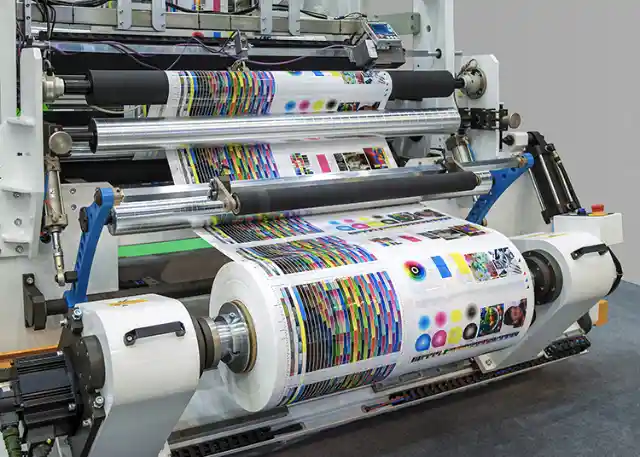
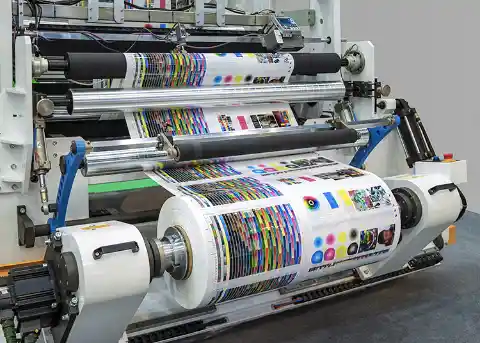
If there’s one invention that history textbooks always include, it’s the printing press. Johannes Gutenberg is credited with creating the first printing press (although, in reality, others had experimented with similar inventions) in the 15th century and paved the way for a literary revolution to sweep Europe and the rest of the world, as well as helping to usher in a new era of intellectual thought and invention.
Before the printing press, texts had to be written and copied by hand. The amount of time and work it took to write something out by hand meant that texts were rare and expensive. But once the printing press was invented, there was suddenly an efficient and easy way to mass-produce all kinds of printed messages, from books to posters to newspapers. Reddit user: Teddybear405
The Microscope


While Galileo Galilei is the primary example of how the telescope changed science, there were many other scientists at the time who were also experimenting with the idea of using glass lenses to peer into the vast and unknown cosmos. People in the Middle Ages wanted to know what was up in the sky above them and what the glittering specks were at night, and so the pursuit of creating telescopes was born.
Historically speaking, the telescope has contributed greatly to the natural sciences, though the things it showed—stars, planets, moons—caused political and/or religious tension on occasion (e.g., Copernicus used the telescope to show that planets revolved around the sun, contrary to the teachings of the Catholic church at the time). Telescopes inspired incredible feats like the Moon landing and the Mars Rover. Today, scientists are still trying to build bigger and better telescopes so that we can see even further into the massive, unknown universe. Reddit user: ZappSmithBrannigan
Ammonia
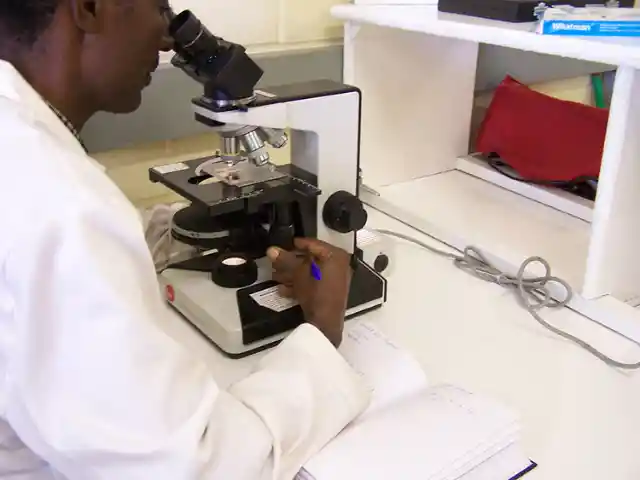
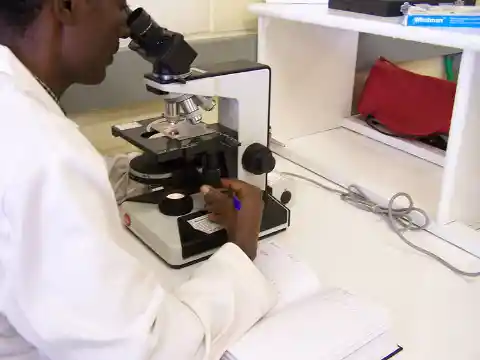
Telescopes let us see the big, far-away things in our universe, but microscopes let us see the tiny, very close things immediately around us. In fact, Galileo Galilei is also credited with inventing the first functional microscope, a result of his work with glass lenses in general. Curious scientists began putting anything that they could get their hands on under the microscope and were astounded to find all kinds of details that they could have never imagined existed.
Without the microscope, modern science would look radically different; so much of what scientists do today depends on the knowledge of things like bacteria, cells, and microorganisms. As improvements were made over time—the modern microscope didn’t arrive until the 18th century—fields like biology and botany and medical studies exploded as people were able to see and begin to understand the tiny aspects of life on earth. Reddit user: Didjin840
Electricity


Ammonia is a chemical compound whose name gets thrown around a lot. But why is it so important? With a long-established history of agriculture and the growing world population, people realized that the yields of agriculture would be insufficient. Scientists began to seek ways to increase agricultural production, especially in how to increase the growth and yield of crops. In the 1980s, Dr. Fitz Haber discovered that hydrogen and nitrogen could be combined to create ammonia.
Ammonia was applied to agriculture as a fertilizer, and with great success—its effectiveness has, more or less, been a primary reason for why the world population has been able to grow and be supported. Today, ammonia is also used in a wide variety of other settings, including hospitals, cleaning supplies, explosives, and refrigeration. Named after Haber, the Haber-Bosch process for converting nitrogen gas in the atmosphere into ammonia has created a cheap and effective way to support modern human life. Reddit user: tomasbarrosd
Plumbing
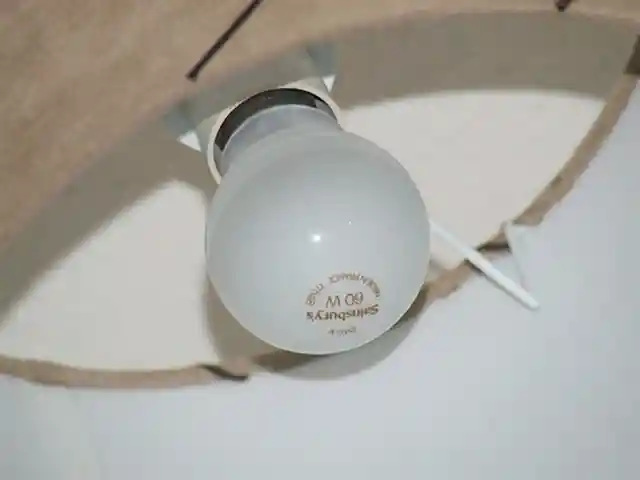

This one is a bit of a trick question because, well, electricity wasn’t really invented by humans. Electricity exists naturally in nature, most obviously in lightning, but the inventions that enabled humans to harness electricity have had a profound effect on modern human history. While Benjamin Franklin and Thomas Edison are the most notable names associated with experiments in electricity, electricity was actually harnessed by humans as early as 1800.
In 1800, Italian scientist Alessandro Volta created the first steady electrical current in a primitive battery (the term “voltage” comes from his name). In 1831, Michael Faraday created the first crude electrical power generator. Then Thomas Edison and Joseph Swan—American and British scientists, respectively—invented the incandescent lightbulb. Edison and Swan set up shop together to create lamps and, in 1882, the first electric street lamps in New York were lit. Today, thanks to the work of later scientists like Nikola Tesla and James Watt, electricity is more than just about lightbulbs and is a cornerstone of modern society. Reddit user: JustCallMeDave
Glass


It’s difficult to imagine life without flushing toilets, hot showers, and dishwashers. But things have not always been this way. Early civilizations like the Chinese empire and the Roman empire had some plumbing, mostly in the form of sewage disposal and baths. Water usage and sanitation were pretty atrocious in the Middle Ages—people rarely took baths, and dirty water was simply thrown into the street—but it’s worth noting that the first flushing toilet was made during Queen Elizabeth I’s reign.
Fast forward and more cities began to install main water lines and sewage disposal systems, and the cleanliness of city streets was much improved. The first shower was invented in 1810, the White House got running water in 1833, and public toilets were introduced in England in 1851. The single handle tap for running water was invented in 1937, and improved public and private plumbing spread throughout the Western world. Reddit user: 6_of_1
The Scientific Method
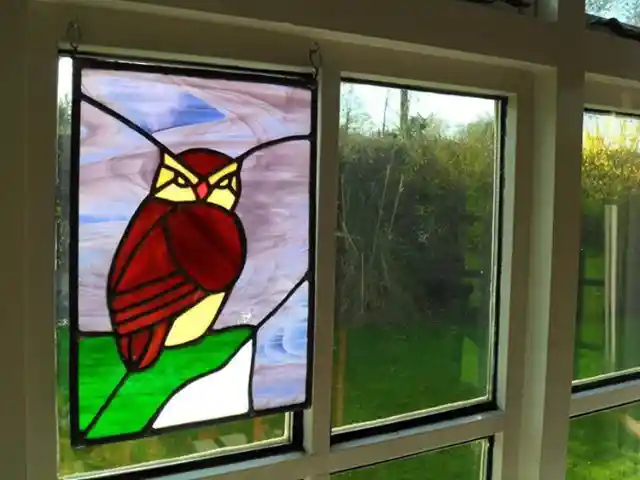

Telescopes and microscopes have had huge impacts on the sciences, and those are all thanks to glass. But even before telescopes and microscopes, glass played a major role in how humans live. While glass has been around since about 5000 BC, it wasn’t until around the 1st century AD that glass production became more widespread and the material began to be used for more than small projects.
In the Middle Ages, glass was most predominant in the form of stained glass for cathedrals and the houses of the rich. However, glass-making technology developed, and soon glass became more commonplace and was used for more ordinary projects. More houses began using windows, and glass began appearing in other places. Lighthouses became much more effective once they began using reflective glass lenses to project light, and people with poor eyesight were able to use spectacles to help improve their vision. Today, glass is everywhere, from smartphones to shops to computers to scientific instruments. Reddit user:willIiams11
Calculus
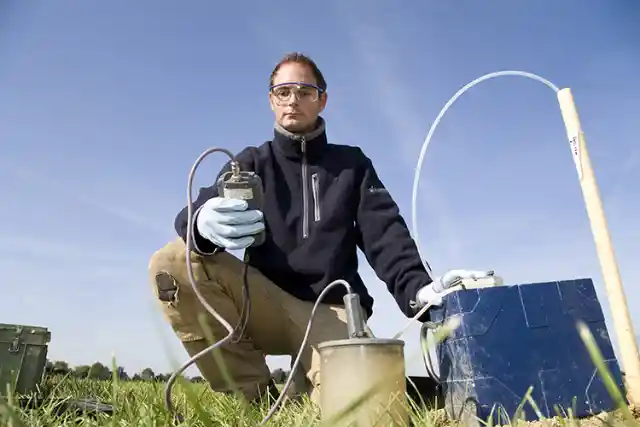
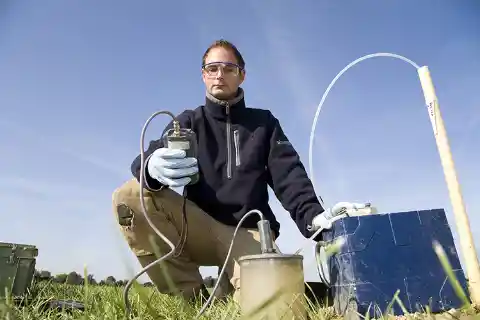
While more of a concept than a physical thing, the scientific method has been a cornerstone for all scientific inquiry since it was first formalized. The scientific method created a way to eliminate subjectivity and introduced a rigorous and universal way to approach and test scientific ideas. Francis Bacon is often credited with being the father of the scientific method in the 17th century.
Bacon put a heavy emphasis on inductive reasoning (whereas philosophers like Descartes believed in deductive reasoning). In grade school today, students still learn about the basic steps of the scientific method: observation, hypothesis, testing said hypothesis, and then seeing if it holds up well enough to become a theory or, eventually, a law. While largely based on inductive reasoning examining the unknown—modern science also integrates deductive reasoning (e.g., the laws of gravity) as a way to guide inquiry. Reddit user: thedawgboy
The Number 0
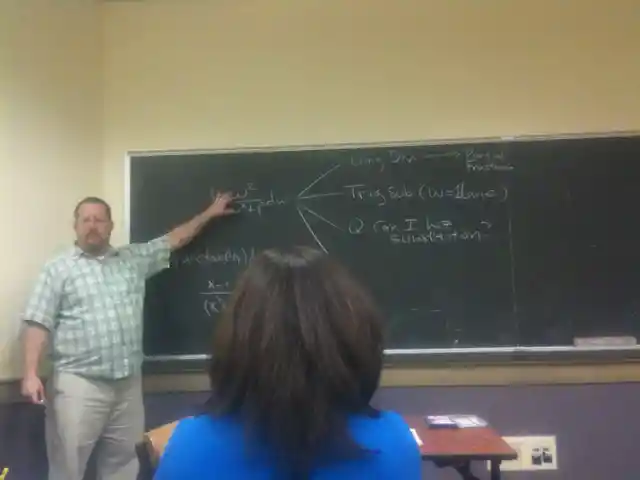

Whether or not you like math, it’s hard to deny how important advanced mathematics are for the modern world. Math is essentially everywhere—Spotify uses math to determine your Spotify Wrapped, banks use math for security, NASA uses math for its rockets…the list is endless. But mathematics wouldn’t be where it is today without the formalization of calculus in the 18th century.
Sir Isaac Newton is often credited with being the founder of the modern study of calculus, but that’s not entirely true. In fact, another mathematician, Gottfried Leibniz, discovered calculus independently at the same time as Newton, and it’s Leibniz’s notation that we use today for calculus. Regardless of who you consider to be the true father of calculus, the ideas behind the math—rates of change, infinite sums, and complex systems—opened the gateway for an explosion in mathematics that continues to this day. Reddit user: WouldntThatBeNice
The Steam Engine
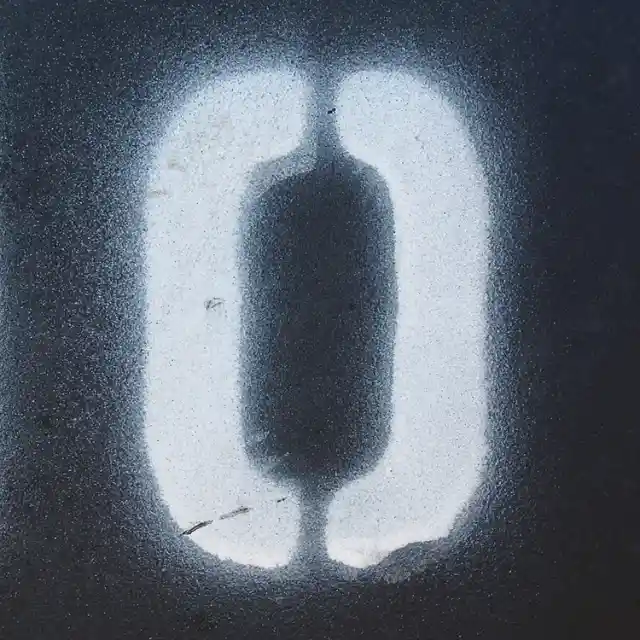
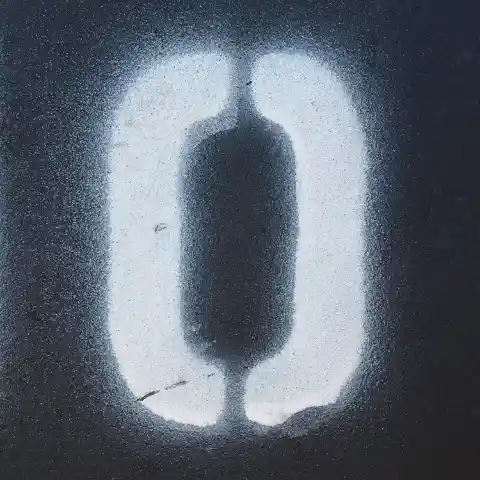
Believe it or not, numbers haven’t always been around. It may seem like a silly thing because we’re so used to the idea of numbers like 0, but understanding what 0 was—an absence—significantly impacted mathematics and philosophy. It wasn’t until Arab merchants brought the notational number “0” from India to Europe in the Middle Ages that the number began to appear in mathematics. But before 0 became accepted in the West, it faced both political and religious scrutiny….
The Catholic church disapproved of 0 because it seemed heretical—how could there ever be nothingness if God was in everything? Italians were also quite suspicious of the idea, as they were suspicious of Arabs in general and actually outlawed the use of the number (reportedly, the Arab word for zero, “sifr,” is the origin of the word “cipher”). Of course, the number 0 and the accompanying idea of nothingness is widely accepted and used in all manner of scientific disciplines. Reddit user: The_Metitron
Corning Ribbon Machine
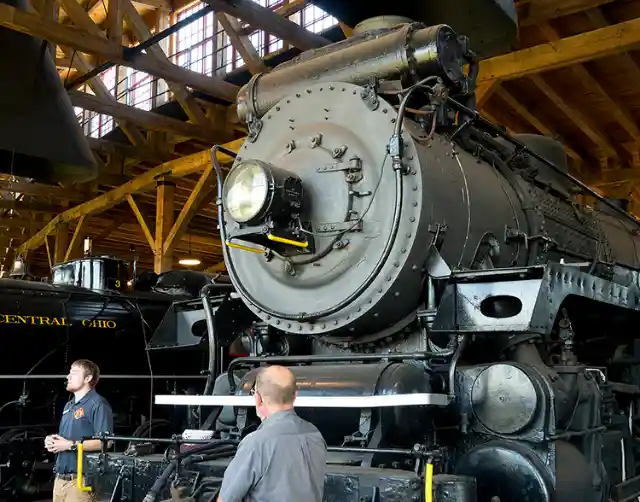
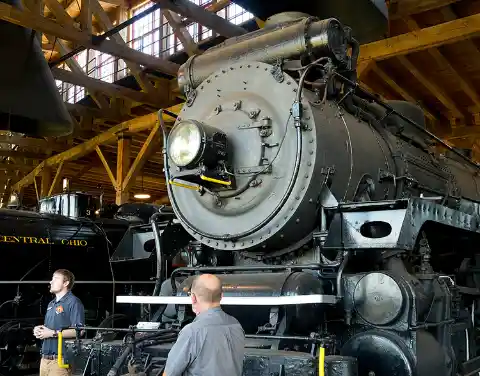
The idea of a steam powered engine had been around since the 1st century, but it never really got off the ground until much later when the Industrial Revolution changed the world. Before the steam engine, labor was done either by people (or animals) working physically or by some crude system like the water wheel. In both cases, the output of energy and power was greatly limited. But in the 17th century, British inventors found a new way to create energy by means of using steam. This discovery is arguably what helped humanity transition from the primitive to the modern, where we now use machine technology for everything.
The invention of the steam engine meant that there was a more reliable, consistent source of energy than animals that get tired or water wheels that require running water. The invention of such a dramatically better source of power kick-started the Industrial Revolution. And even to this day, large amounts of power are still sourced from steam turbines in nuclear power plants. Reddit user: gingerkid1234
Paper


You may have never heard of the Corning ribbon machine, but this is the machine that took human civilization out of the darkness and put an electric light in every house and workplace. Before the invention of the ribbon machine, the glass electric light bulb was simply too expensive to make and overall didn’t actually have that much impact on the world.
But with the invention of the ribbon machine by Corning Glass Works, manufacturers could suddenly produce 2,000 light bulbs a minute. Previously, glass light bulbs had to be blown by hand with the production rate of, at most, two bulbs per minute. Once the ribbon machine came into action, people were able to turn night into day for such a low cost that everyone could afford an electric light source. Reddit user: MrF33
Air Conditioning


You may remember from history class that the Egyptians used papyrus scrolls as a crude surface for writing. But paper as we know it today wasn’t invented until the 1st century AD in China. Ts’ai Lun invented paper by mixing ground mulberry bark with hemp plants and water and then allowing the pressed mixture to dry. Paper became widely used throughout China and the rest of Asia but didn’t reach Europe until the 13th century.
Europeans went from using parchment—an expensive product of animal skins—to the much more economical medium paper, thereby expediting the process of producing texts. Of course, as we all know, writing was still an expensive and time-consuming process until Gutenberg’s printing press came along, but paper was still a vital component of the surge in literature. Today, paper is readily available to us. Reddit user: KnownForNothing
Birth Control


It’s always a relief to enter an air-conditioned building when it’s hot outside, but this has only been the case for about 100 years. The electrical air conditioner was not invented until 1902, when Willis Carrier wanted a way to cool the temperature of the environment for industrial processes (a paper-making plant, in fact). The precursor to Carrier’s invention was the use of liquid ammonia for refrigeration and ice-making in the 19th century.
Today, air conditioners use freon instead of ammonia (a much safer and more stable refrigerant agent) and give people relief from the heat everywhere. Air conditioning hasn’t just been about personal comfort, though—with both air conditioning and heating, humans have been able to live in and develop places that would previously have been extremely uncomfortable to inhabit (e.g., Alaska and Florida). Reddit user: Schuss
The Transistor


Various methods of birth control have been around for centuries, from herbal concoctions to physical barriers. But modern birth control didn’t come about until the 19th century, when population sizes and women’s rights became of political concern. Before modern birth control, methods of preventing pregnancy were inconsiderate of the transmission of diseases; it was believed that intercourse should have the sole purpose of producing offspring.
The modern birth control movement disagreed with this pragmatic view and instead argued that people should still be able to have intercourse without wanting to get pregnant or ill. As birth control became more accessible and reliable, birth rates began to decline in industrialized countries, and women experienced more freedom without being bound to the sole duty of motherhood. Today, birth control is widely used and readily accessible. Reddit user:
mechtonia
GPS Navigation


Though a small device, the transistor is responsible for revolutionizing modern electric technology. Like a faucet that controls a much larger stream of water, transistors are a critical component in electronics by acting as both amplifiers and switches. In other words, transistors can either take a small current and produce a much larger one, or they can use a small current as a signal to fire a larger current. This is the foundation of all modern computer technology—the binary system of being either on or off; 1 or 0.
After the transistor’s invention, advances in technology became more frequent, the most notable of which was computer technology. The three physicists who invented the transistor, William Shockley, John Bardeen, and Walter Brattain, were awarded with the Nobel Prize. Considering the inventions that the transistor has paved the way for, one could argue that it was the most important invention of the twentieth century. Reddit user: stieruridir
The TV
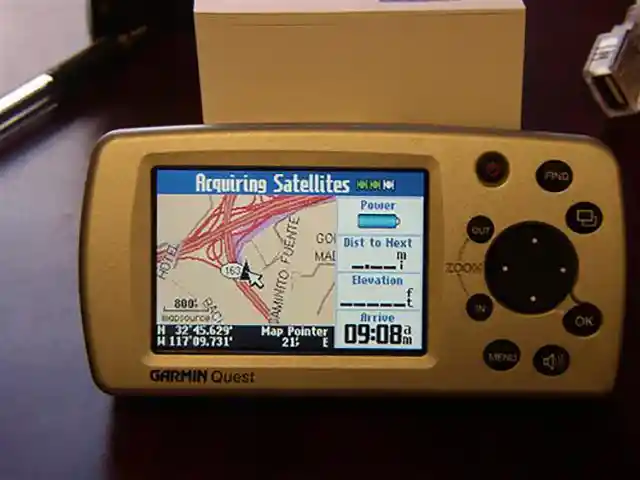
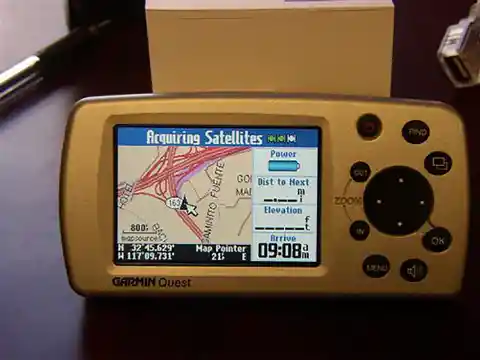
Be honest: without GPS, people would all be a whole lot more lost on excursions like road trips and walking in a new city. GPS stands for Global Positioning System and relies on a network of satellites around the earth to determine position. A fairly recent invention, GPS has taken some time to develop. The first satellite navigation system, Transit, was used by the United States Navy and was first successfully tested in 1960. Using a constellation of five satellites, it could provide a navigational fix approximately once per hour.
In 1967, the U.S. Navy developed the Timation satellite, which proved the ability to place accurate clocks in space, a technology the GPS system relies upon. By 1994, 24 satellites were put into orbit and created the first GPS system. However, it wasn’t until 2000 that users outside of the US military could receive a high-quality GPS signal. Today, all smartphones have GPS capabilities as well as nearly every other electronic device. Reddit user: Grr_Arrrg
Penicillin


Without the invention of the television, there would be no “Netflix and chill,” and many of us wouldn’t know what to do with our free time. In the 19th century, early inventors created a “mechanical television” where images were mechanically scanned and transmitted onto a screen. The first electronic television was invented in 1927 by 21-year-old Philo Farnsworth and relied upon a beam of electrons.
The first image ever transmitted by the electric television was a simple line. Later, Farnsworth would famously transmit a dollar sign using his television after a prospective investor asked, “When are we going to see some dollars in this thing, Farnsworth?” Since then, TVs have come a long way, with color and remote controls being added in the ‘50s. While most people prefer to stream shows instead of watching them on cable TV, much of modern entertainment would be impossible without the invention of TV technology. Reddit user: jagenigma
Trains


Modern medicine and healthcare would look very different if it hadn’t been for Sir Alexander Fleming and one of the greatest accidental discoveries thanks to the microscope: penicillin. A Scottish chemist from the first half of the 20th century, Fleming noticed one day that mold was growing on a contaminated culture of bacteria. Upon closer inspection, Fleming realized that the mold was, in fact, preventing the culture of bacteria from growing.
Fleming’s discovery was furthered in the 1930s by researchers at Oxford who developed penicillin that could be administered as a medicine to mice. In 1942, the first patient in the United States received penicillin for a throat infection. By the end of World War II, American pharmacies were making 650 billion units of penicillin a month. Today, penicillin has become the most widely used antibiotic in the world. Reddit user: brontupistow
Refrigeration


In the 18th century, England was experiencing rapid economic growth and began looking for more effective ways to transport goods like coal and iron over land that didn’t require carts. Various wagon-like structures came into use, being put on wooden tracks to make transportation easier. With the development of the steam engine, inventors soon began to make steam-powered engines into locomotives that could run on tracks and carry loads. By the 1840s, “railway mania” swept the UK as the train industry exploded.
Today, people all around the world depend on trains and what they carry. Coal trains carry coal that’s then burned to provide energy for cities. Cargo trains can carry large cargo that would otherwise be difficult to move. Passenger trains allow people to travel quickly and efficiently over large swaths of land, especially in the UK. Born out of the world-changing steam engine, trains form a vital component of modern transportation. Reddit user: evancolcano
Movies


Refrigeration helps to expand the lifespan of perishable foods and, in modern times, it’s also necessary for many medicines that rely on being in temperature-controlled environments. But before the idea of keeping perishable foods cold, people relied on primitive methods like drying and curing meats with spices or constantly reheating food in order to try to kill off bacteria. By the 19th century, there was a booming business for harvesting natural ice in order to keep food cold.
People experimented with mechanical refrigerators that used a combination of ice and chemical refrigerants like sulfur dioxide. It wasn’t until the 19th century that ammonia absorption refrigerators were invented (essentially the same kinds of refrigerators that we used today). With the advent of advanced refrigeration technology, the frozen food industry took off and, thanks to the 19th century inventors, we now have an incredibly wide range of food readily available to us. Reddit user: Proclaimer_of_heroes
Plastic


Going to movies has been a long-running family pastime, but the first “moving picture” was first prototyped in the late 19th century. The first films that were shown to paying audiences were produced by the Lumiere brothers in Paris, where very short clips were shown. But in just a few decades, the film industry grew at a rapid pace, and experimentations with adding sound and color began in earnest.
The first golden age of film occurred during the ‘30s and ‘40s, when basic color and sound had been mastered and film had become the most popular form of entertainment. Today, movies occupy a prestigious place in the world of popular entertainment. And from cinematic breakthroughs like Star Wars by George Lucas to Avatar by James Cameron, it seems like the sky’s the limit for the possibilities that digital technology continues to bring to film. Reddit user: MrHilder
The Internet


The first synthetic plastic was created in 1869 by John Wesley Hyatt, who was trying to create an alternative to the costly material of ivory. Companies were seeking an alternative to the limited natural resources of materials like ivory and tortoiseshell and immediately latched onto Hyatt’s invention of a synthetic material that could mimic natural materials for a fraction of the cost.
Major chemical companies began researching plastics and other polymers, but the plastics industry grew overnight when World War II broke out. Plastic production surged as countries like the United States needed materials en masse that could be man-made. Materials like nylon and plexiglass were created during this time. Today, plastic appears in just about everything because of its versatility and ease of production, though its widespread usage has led to major concerns about its environmental impact. Reddit user: KhaoticMess
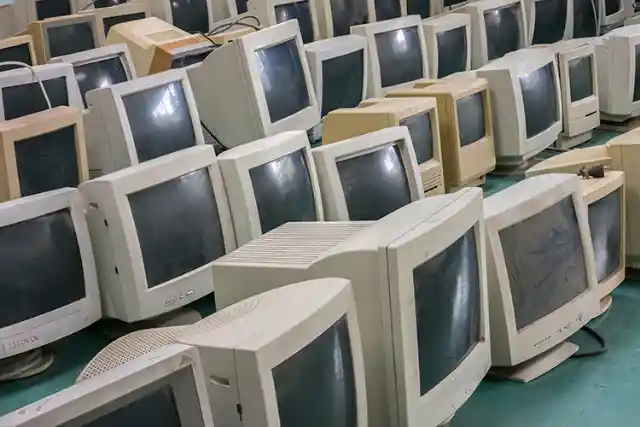
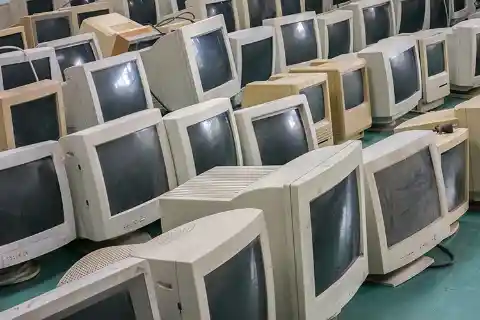
This one shouldn’t strike you as a surprise, but it’s truly incredible how the internet and its widespread accessibility have changed the ways of human life. 20 years ago, the world didn’t have Google or Instagram, or even Wikipedia, but now the internet fundamentally shapes the way that humans interact with the world and with each other, from jobs to fashion to health to travel….
People who were born within the last few decades have a difficult time imagining life without smartphones and laptops and other internet-connected devices, but people forget that the idea of the internet—a network of networks—was barely an idea in the ‘80s and only just began to take full flight in the ‘90s. But now, it’s changed the modern world more profoundly than anyone could’ve imagined. Reddit user: TurdsInHotSauce